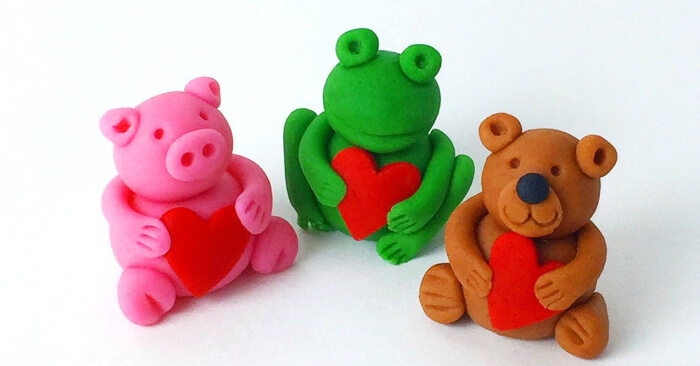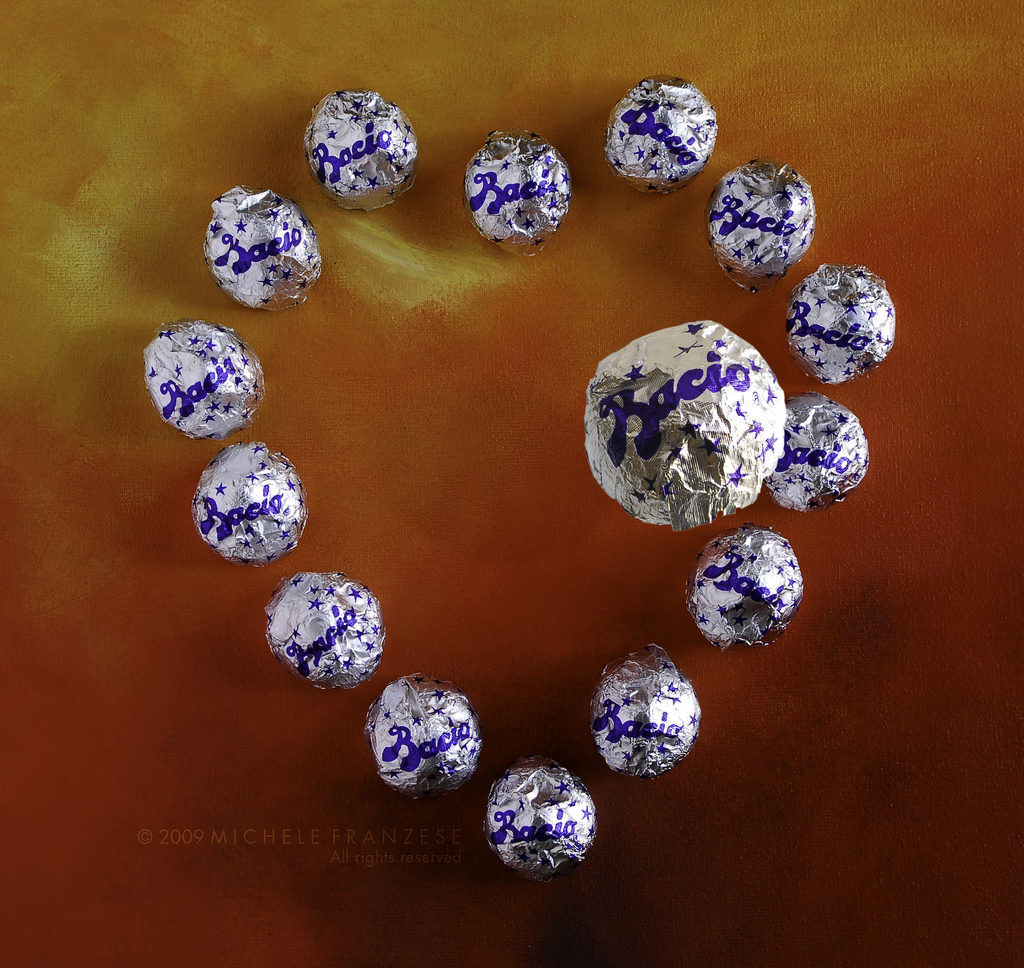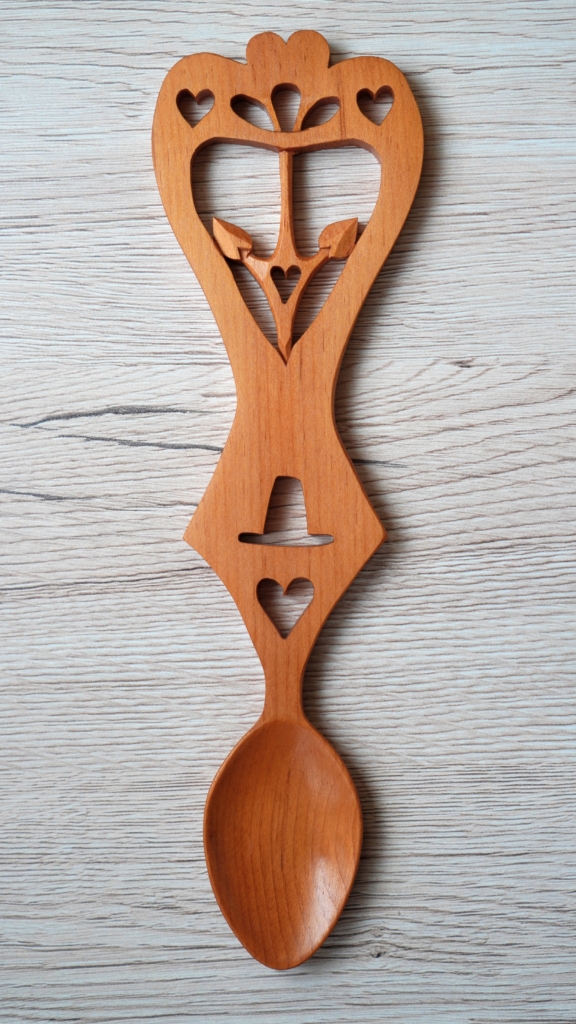
We're all familiar with the traditions surrounding Valentine's Day in America – a dozen roses, a box of chocolates, a sappy store-bought card (or a handwritten one, if you've got a way with words). But in other parts of the world, many cultures have their own unique twists on Valentine's Day traditions. Carved wooden spoons? Public weddings? Lucky pigs? Read on to find out more.
Argentina
The passion of the Argentinians can't be contained by just a single day, so they set aside a week in July as "Sweetness Week," when lovers and friends exchange candies, kisses, and good cheer.
Brazil
Brazil does not celebrate Valentine's Day on February 14, as it falls too close to the weeklong Carnival celebration. However, June 12 is "Dia dos enamorados" ("Lovers' day"), where couples exchange gifts, cards, and candy. On this day, some single women perform rituals (simpatias) to get in the good graces of Saint Anthony, the patron saint of marriage whose day is June 13.
Bulgaria

Bulgarians have designated February 14 as "San Trifon Zarezan," or "winemakers' day," so of course they celebrate by sharing a few glasses of local wine.
Chile
Chileans let their inner romantics out on February 14, and for a week or so on either side, as they decorate shops, malls, and streets with balloons and flowers. The typical gifts of flowers, chocolates, and cards are given, but Chileans are not afraid of bigger gestures as well, including gifts of jewelry and surprise travel plans.
China
China's Valentine's-adjacent holiday is the Qixi Festival, celebrated on the seventh day of the seventh month of China's lunar calendar. This tradition is based on an ancient Chinese story about a forbidden love affair between a celestial weaver and a mortal man. On this day, Chinese couples exchange gifts and go on dates, while some women practice weaving and carving intricate designs on melon skins to bring good health from Zhinu, the weaver in the story.
Colombia and Guatemala
In these South and Central American countries, Valentine's Day is called the Day of Love and Friendship, and is much less romantic. Friends give anonymous gifts, and Guatemala City residents partake in a parade for senior citizens while wearing bright colors and traditional Maya garb.
Czech Republic

"Karel Hynek Macha statue" by Daniel Hulme (ZuluOne) is licensed under CC BY 2.5.
Valentine's Day in the Czech Republic has gained popularity recently. They celebrate the holiday on May 1, when many young couples make a pilgrimage to the statue of Karol Hynek Macha (above), a famous Czech poet. This statue in Prague stands near a grove of cherry trees, under which the lovers kiss for good luck.
Denmark and Norway
These two Scandinavian countries put a twist on the holiday, as friends and lovers exchange all manner of "lover's cards." Some give handmade cards with pressed white flowers, called snowdrops; others offer more traditional cards; and some men give a gaekkebrev, an anonymous "joke letter" containing a funny poem or rhyme written on intricately cut paper. If the recipient guesses the sender, she earns an Easter egg from the sender later in the year.
England
Valentine's Day traditions vary across the different regions of England, but one common occurrence is the singing of special songs by children, for which they are rewarded with candy, fruit, or money. Many English people bake valentine buns with plums, raisins, or caraway seeds, which hearkens back to a celebration of a good harvest.
Finland and Estonia
More platonic love is on display here, as Finland and Estonia celebrate Friends Day on February 14. People give cards to loved ones, friends, and neighbors, and the day is a popular engagement date.
France
France is a lover's paradise, and couples flock here for Valentine's Day every year. French couples exchange letters and cards on the day, a tradition which was actually started in France in the 15th century, when the imprisoned Duke of Orleans wrote a poem to his lover and called her "my valentine."
Ghana
The Ghanaians know the way to our heart: chocolate! February 14 is National Chocolate Day, an initiative introduced by the government in 2007 to shed light on the fact that Ghana is one of the world's largest producers of cocoa. Ghana holds concerts and performances, and restaurants offer special chocolate-themed menus, for the special day.
Germany
In Germany, the symbol for luck (as well as lust) is an odd one: the pig! Lovers exchange flowers, chocolates, and all manner of pig-shaped gifts, including statues and stuffed toys. Heart-shaped ginger cookies with love messages written in icing are also popular.
Ireland

The Church of Our Lady of Mount Carmel, where St. Valentine's relics reside. Source
Many Irish folks in search of true love make a pilgrimage to the Shrine of St. Valentine in Dublin, which allegedly houses relics of Rome's original Saint Valentine, who was martyred for performing secret weddings for soldiers.
Israel
Israelis don't celebrate Valentine's Day in February, but do recognize the ancient Jewish Tu B'av ceremony in the summer. This tradition is about rebirth and new beginnings, and lovers exchange flowers and heart-shaped gifts to renew their love.
Italy

Italy's famed Baci Perugina. Source
Another passionate nation, Italy couldn't pass up a chance to honor the universal emotion of love. Couples on Valentine's Day give each other gifts like the baci perugina, a small box of hazelnut-filled chocolate kisses (baci means "kisses" in Italian). Each candy has a small love note inside written in five different languages. An older tradition states that the first man that a single woman spots on Valentine's Day will become her husband within the year.
Japan
The Japanese associate February 14 with one thing: chocolate. Some estimates suggest that Japanese chocolatiers make half of their yearly income from Valentine's Day sales. Women give their male friends and coworkers giri-choco, an obligatory gift of chocolate, while they reserve gifts of honmei-choco ("true-feeling chocolate") for those they care more about. Men return the favor on March 14 ("White Day"), with gifts of white chocolate and other, more valuable pieces.
Mexico
Mexicans don't distinguish between romantic and platonic love - Feburary 14 for them is the Day of Love and Friendship, where people exchange flowers, stuffed animals, balloons, and cards.
Philippines
Folks in the Philippines take this in completely the other direction, as the government sponsors mass Valentine's Day marriage ceremonies for dozens (or hundreds) of couples at a time!
Romania
Romanians celebrate Valentine's Day 10 days later, as a combination of the celebration of love and of the coming spring. Young couples pick wildflowers and wash their faces in snow to prepare for spring, and many lovers pick this day to pop the question.
Slovenia
In Slovenia, St. Valentine is one of the patron saints of spring, good health, and beekeepers. It's traditionally known as the first day of spring, when work commences in the fields and vineyards. Recently, couples have begun to recognize the day as a day of love, though those are usually reserved for March 12 (St. Gregory's Day) or February 22 (St. Vincent's Day).
South Africa
South Africans celebrate with flowers and gifts, and some women pin the name of their love interest on the sleeve of their shirt, which ensures that secret admirers don’t remain secret for long! This hearkens back to the ancient Roman sacrificial festival of Lupercalia, held on February 15, where women wishing to become pregnant would hope to touch the sacrificial animal’s hide for good luck.
South Korea
South Koreans enjoy the Western traditions of flowers and gifts, while also partaking in the Japanese custom where women give men chocolates and men return the favor a month later on White Day. For single folks, April 14 brings "Black Day," when singles convene to commiserate over a noodle dish called jajangmyeon, which is topped with a black sauce.
Spain

On October 9, most of Spain celebrates the feast of St. Dionysus with parades and festivals. Men also create macadoras, small marzipan figurines, that they give to their female companions as a sign of love.
Taiwan
Twice a year, Taiwan goes crazy for flowers. On February 14, and then again on July 7, men give elaborate bouquets to their loved ones, with the color and number of flowers representing an important message. The most important? The bouquet of 108 roses, which means, "Will you marry me?"
Thailand
Thailand's adventurous lovers often take risks on Valentine's Day, with skydiving, bunjee jumping, and underwater weddings becoming common traditions!
Wales

"Welsh love spoon" by Kmtextor is licensed under CC BY-SA 4.0.
The Welsh get a jump on the rest of the world for Valentine's Day, instead celebrating St. Dwynwen's Day on January 25. He's the patron saint of lovers, and men traditionally give their significant others hand-carved wooden spoons, which hearken back to the time when love-sick Welsh sailors carved designs into their spoons to give to their lovers upon returning home.
So there you have it! If you thought Valentine's Day was just about giving out candies, cards, and hugs in the middle of February, think again! It's a wide world out there, and we're happy to help broaden your understanding of it, either here on the blog or on one of our 47 small-group tours.
By using this website you are agreeing to our Cookie Policy.